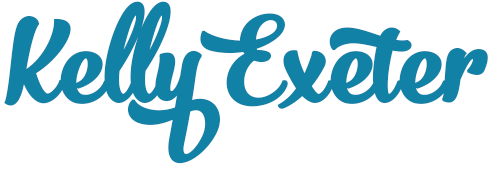
Ok, I’ll come clean.
I used to be a huge snob when it came to the writing of books.
I felt if a book to call itself a book, it had to be:
- More than 60,000 words in length,
- Available as a hardback or paperback, and
- Able to be purchased from a book store.
For an author to call themselves an author, they had to be traditionally published.
No ifs. No buts. These were the rules.
Here’s how I played by those rules:
For years I sat around being an ‘aspiring writer’, dreaming of the day I’d have an idea so good I could write 60,000+ words about it and a publisher would want to publish it.
What a waste! I shudder to think of all the words that went unwritten in that time. Not to mention the progress I failed to make as a writer.
Happily, two things eventually occurred to break the cycle.
The first was I read Jeff Goins’ book You Are a Writer – So Start Acting Like One.
Weighing in at a whopping 20,000 words, it was delivered to my iPad as a pdf (thus not a ‘real’ book in my mind – oh, the irony). Upon finishing it (I’m pretty sure I read it in one sitting), it got me doing exactly what the title promised. I dropped the word ‘aspiring’, started calling myself a writer, and started actually writing.
The second thing to occur was I read Matthew Michalewicz’s Life in Half a Second. Two things stood out for me about that book:
- There was not a single bit of padding in there. At around 40,000 words, it was exactly as long as it needed to be to get his message across, and no more.
- I finished it.
Number two might sound weird. I mean, any avid reader like me would finish every book they started. Right?
Well, when I look at the non-fiction section of my bookshelf I can confidently say I’ve failed to finish at least a quarter of those books, if not more. And not because the topics weren’t interesting to me. It’s because most of them were highly padded to make a word count which made them boring and repetitious.
That’s when I realised that word length, physical manifestation and the fact a book had been traditionally published did not guarantee that a book was going to be good. (By ‘good’ I mean both interesting to read, and impactful on my life.)
Matthew’s book also included a very specific call to stop waiting around for someone else to give you permission to do the things you want to do. Just do them already.
That was all the push I needed to write and publish my first book, Your Best Year Ever.
And I’m so glad I did.
Despite being short and sweet at 12,000 words, and despite the fact I wrote it in 12 days and released it to the world 30 days after that, it’s been my best selling book to date. It’s also the book I get the most emails and positive reviews about (i.e. people saying it’s positively impacted their lives).
Former snobby me would never have put that book out into the world. Non-snobby me has gone on to experience these further benefits from writing that first book:
- It helped grow my email list 400%.
- It got me interviewed on 10+ podcasts and gave me the confidence to start my own podcast.
- It gave me the confidence to write and publish another three books.
- It got me on the radar of someone who then engaged me to write their book for them.
- It’s given me the skills to help other people with their books – no matter where they are in the writing and publishing process.
Suffice to say, I’m glad I got over my book snobbery in the end.
If you’re subject to the same, it might be time to get over yours too.
Of course, I do need to note that book writing isn’t for everyone. Should you write a book? The following thoughts might help you decide.
(NB: Most of these ideas relate to non-fiction book writing because that’s the form of book writing I do.)
4 reasons you should write a book
1. It’s really hard
And because it’s hard, relatively few people who say, ‘I’d love to write a book’ actually go on and do it. If you’re one of the people who does, not only is it immensely satisfying, it sets you apart from those who don’t.
2. You like helping people
Perhaps the favourite bit of feedback I get is when people say they got x out of the first reading of one of my books, and then y out of the second reading. I love the fact that people can re-visit a book and get something completely different out of it the second time round. How amazing to be able to help people again and again.
3. You have a big idea and a book is the best way to share it with the world
Sometimes a big idea is best shared via a blog post. Sometimes a five-minute video would serve it best. But sometimes, your big idea needs thousands of words over which to build an argument and provide the reader with the information they need to effect a genuine change in their lives. If that’s the case with your idea, a book is the best way to get that idea to spread.
4. You’re an expert in something
You don’t need to be the world-leading expert in something – you just need to be an expert. And if you are, a book is a great way to demonstrate that expertise, help people with it, and then leverage it to take you where you’d like to go in your professional life.
3 reasons you definitely shouldn’t
1. It’s really hard
I won’t lie – writing a book can be a painful process. (Painful, but also satisfying.) If you’re not willing to ride the creativity rollercoaster of:
This is brilliant > This is hard > This sucks > I suck > This is brilliant ….
over and over again, then writing a book isn’t for you.
2. You don’t like writing
If you flat out don’t like writing, that doesn’t mean you can’t write a book – it just means you’d probably engage a ghostwriter. (It’s what all the celebs do.) A ghostwriter takes your ideas and words, and arranges them on a page in a marketable way. They’re expensive though, so you’d probably only engage one if you were confident of selling thousands of copies, or the book was a lead magnet for your expensive consulting services.
3. You have nothing to offer the reader
As much as I think everyone has it in them to write a book, don’t write a book just for the sake of it. You need to have something to say and at the end of the day that something must benefit the reader in some way. If what you’re writing is only of benefit to you, then what you’ve got there is more journal than book.
—
So, tell me in the comments – is there a book in you dying to get out? What’s stopped you from writing it?
And, as an FYI … if, after reading the above, you’ve decided that: YES! This is the year I’m finally going to write my book, and it’s a non-fiction book, you might be interested in joining the online community where I coach non-fiction writers through every part of the process from idea right through to publication. I opened up 15 spots in that community this week and there are only 8 left. So … get in quick!

